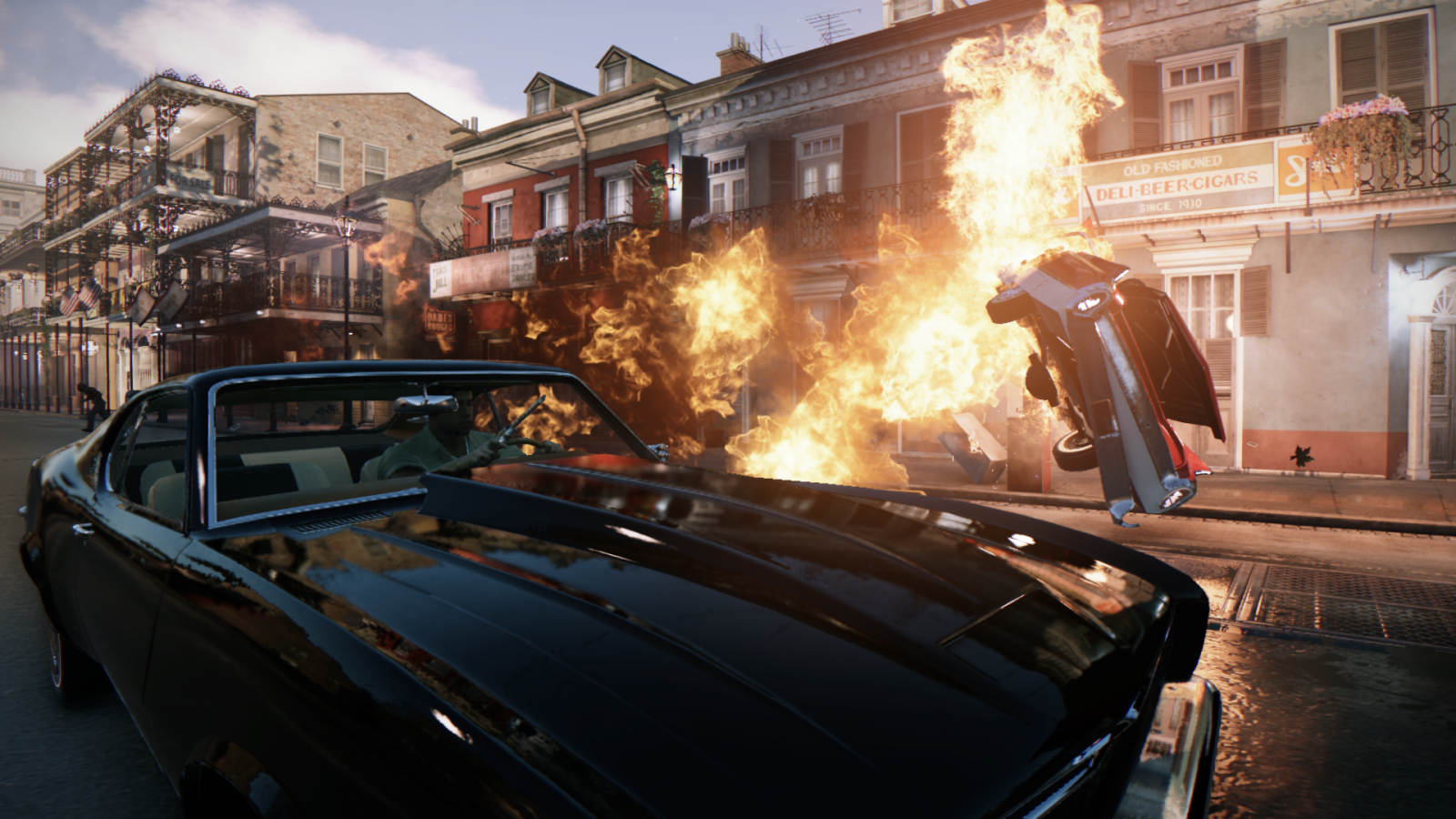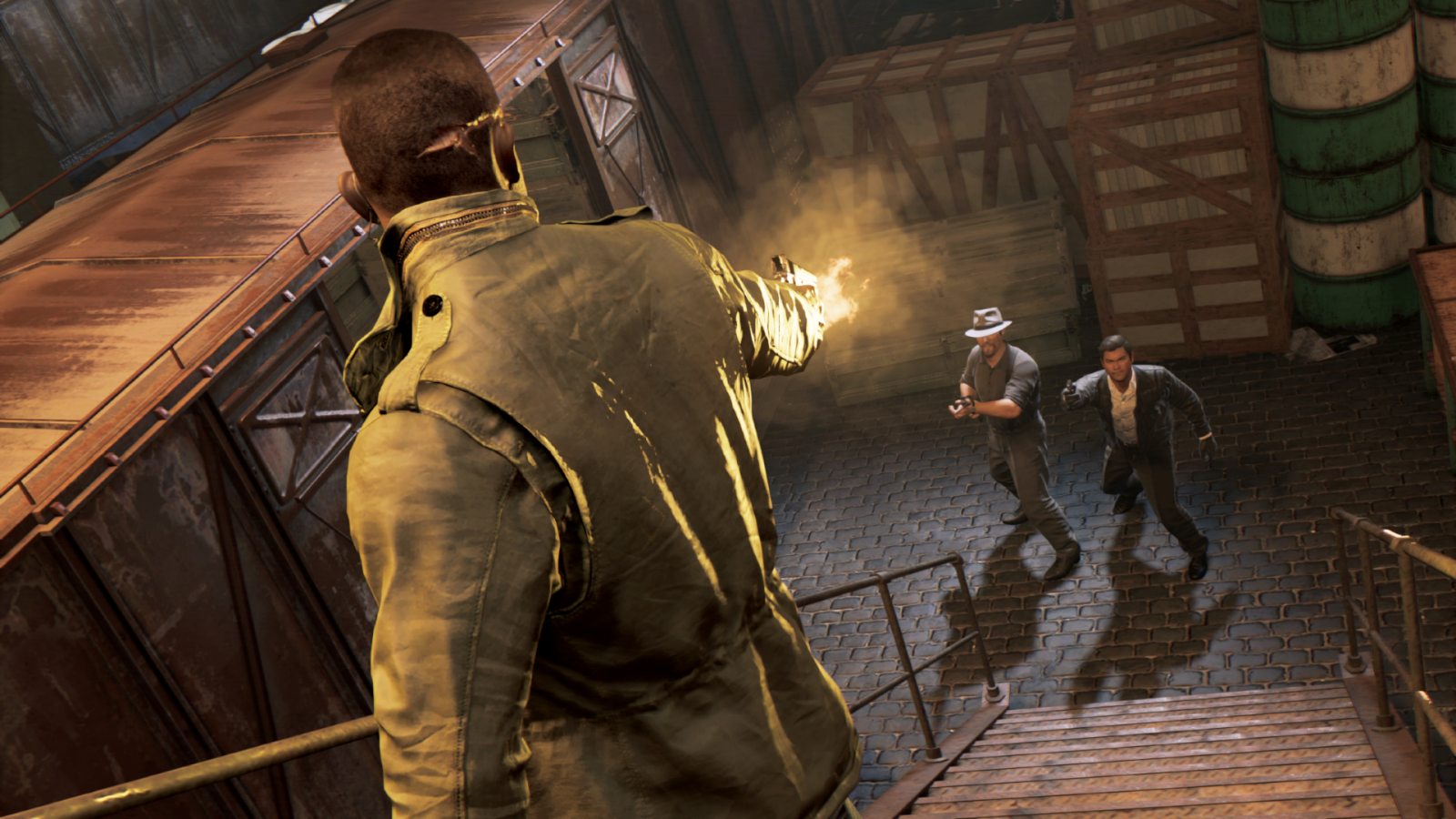Mafia 3's lead writer on race, historical context and cinematic influences of Hangar 13's crime epic
Lead writer Bill Harms discusses major influences and impact of race on anticipated revenge thriller.
Mafia 3 is the most interesting big budget action game of the busy final stretch of 2016. It's an open world crime epic in the Grand Theft Auto-mould, but where GTA often falters in terms of story, Mafia hopes to excel.
Hangar 13's story is aided no end by its period setting. 1960s New Orleans (here a fictionalised city called New Bordeaux) has masses of potential and making a black protagonist the focal point offers a ripe opportunity to explore a very tumultuous time in the United States.
Ahead of Mafia 3's anticipated launch, IBTimes UK sat down with lead writer Bill Harms to discuss this and more.
IBTimes UK: The era and setting comes with a huge amount of story possibilities, from civil rights and racial tensions to Vietnam and the emergence of drug culture – to what extent do these factor into the game?
Bill Harms: The Mafia franchise is known for being set in a specific time and place, so all those things feed into the story. When we settled on 1968, it was a very turbulent time in American history – Vietnam, the Civil Rights movement, the assassination of Dr King – all those elements. The story is a revenge story, but those historical aspects come in and not just ground the experience but inform how characters in the game view the world and how the world views them.
So Lincoln for example is a Vietnam vet, he was in the special forces, and that dictates how he handles himself in the game world – he's very proficient, he's highly trained. So it's about bringing those aspects in to bolster the story.
To what extent will specific historical events, like the assassination of Martin Luther King Jr and the subsequent riots, influence the game's story and setting?
We have... so it's definitely something that characters comment on. Not even just primary characters, there are women on the street will talk about things – like the extradition of James Earl Ray. Those things feed in, there's also a subplot, which I don't want to spoil, but it does reflect what was going on. It's fictionalised, but it does represent.
How have you approached the racial tension of the period considering how they relate to current events?
We felt it was very important to make things as authentic as possible, so we did a lot of research, and that ran the gambit from watching documentaries – like James Baldwin, who was a civil rights activist, he made one called Take This Hammer and that's literally just him walking around San Francisco interviewing African Americans about their life and what it's like to live the 60s. The conversations they had ran the gambit from: "I couldn't find a job, then I did find a job, but my job is to tear down the building where I live. So when I'm done I won't have a job and I won't have a home" to him having a debate with a man about whether an African American would ever become president. He also has a monologue at the end where he talks about the origins of the n-word and how he rejects that. So it's things like that. It was Jim Brown, who played football for the Cleveland Browns who gave a very famous interview with Playboy in 1968 when he was at college, he was driving through the south and he was pulled over by the police because his car threw dust on white people.
So it's examining those things, not only us as the narrative team, but we exposed all that to the entire team. So if there was a documentary, we'd screen it. Then also, of course, we obviously have a very large African American cast as part of a very diverse cast, and when we were shooting the cinematics I'd have conversations with them, I'd say: "Does this feel true to your experiences?" and "Is there anything you want to change?"



Do you feel there's an important balance to strike between your depiction of a fictionalised New Orleans and honouring the actual history of the city during this era?
We spent a lot of time on that. The overall story isn't about race, it's not about it, it's about a man getting revenge, but Lincoln being who he is, all of those things inform him and as I've said, how he views the world and how the world views him. That manifests in other ways other than racist language, so if you're in Delray Hollow – which is the African American community where Lincoln grew up – if the people there see you committing a crime they'll call the police, they care about their neighbourhood, but it's the police who don't care, they may or may not come. Then if you're in Downtown, they do care, or somewhere like Frisco Fields, somewhere that's very upper class, white, the police there will respond very quickly and the people on the street will respond to you differently. So it's very important to use those elements to ground the experience and make it authentic.
The game's marketing has evoked the tone of violent revenge thrillers and gangster films, how have such movies influenced the game?
A lot of our inspiration comes from a wide array of movies, all the way from Goodfellas to The Town and a French movie called A Prophet, which was a big inspiration. You know, The Departed. Even like, tone-wise, there's a film called The Rover – with Guy Pearce – which is sort of a post-apocalypse setting but the tone was, personally, an inspiration for me because of the singular focus of getting revenge. I'm also a big crime fiction buff, so writers like Jim Thompson, Richard Stark – who wrote the Parker novels [Stark was a pseudonym, the writer's real name was Donald Westlake] George V. Higgins, who wrote The Friends of Eddie Coyle and Cogan's Trade, which became Killing Them Softly, a movie with Brad Pitt – that's an awesome movie, it's fantastic. We didn't explicitly take things from those, but they inspired us. There's also a documentary called Cocaine Cowboys, which helped us develop our framing device...
Let's talk about that. The documentary framework will come as a surprise to many, but it really seems to work in action
Yeah, Cocaine Cowboys was a big influence. Just the life of Jon Roberts. He also co-wrote a book called American Desperado and the s**t that he did, you can't make it up. So Mafia 3, the framework for it is a documentary, so there are three primary characters who fulfil various roles in the documentary: one is an FBI agent named Jonathan Maguire, and he's speaking from present day. He joined the bureau in '68 and Lincoln Clay was one of his first cases and Lincoln is his Moby Dick, he's been obsessing over him for 50 years. So he's commenting from present day in his basement, filled with evidence as he continues to try and bring Clay to justice. Another character is Father James, who ran the Catholic orphanage where Lincoln grew up. He exists in the game but there's also a much older Father James reflecting back, and their opinions of things differ because of the passage of time. The third one is John Donovan, a CIA operative who served with Lincoln in Vietnam, and he's the first person Lincoln contacts when he decides to go after Sal Marcano. He's testifying in front of a select senate committee in 1971, regarding the events in New Bordeux.
It was really hard to do the documentary because most documentaries film a bunch of stuff and then edit it together. Obviously we can't do that because we're mo-capping, but the cool thing about it is it allows to provide exposition without it sounding like exposition and it's also a great way to have other characters directly offer their opinions and provide context for what's happening. It's also used to set up certain missions and lay out missions.
The game will inevitably draw comparisons to Grand Theft Auto...
[PR interjects] So if you could keep the questions about Mafia and not reference any other titles. Like, you can do it generically, that's fine, we don't discuss, specifically...
... okay... is it tough developing a game in the shadow of a series so huge you could never really fully escape it?
PR: He's not going to answer that.
Mafia 3 is out tomorrow (7 October) on PS4, Xbox One and PC. Grand Theft Auto 5 is out now.
For all the latest video game news follow us on Twitter @IBTGamesUK
© Copyright IBTimes 2024. All rights reserved.























